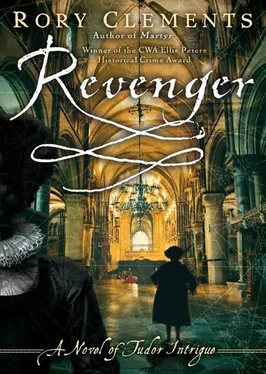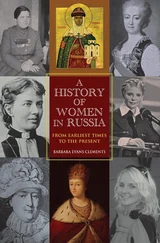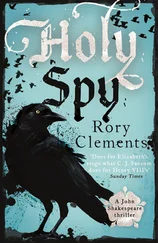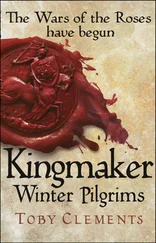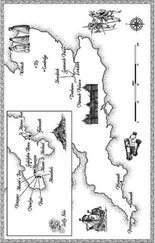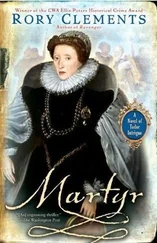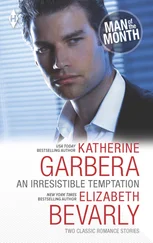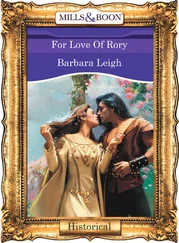The light came through the door now. From his hiding place, Shakespeare could see a vague shape and shadows as a figure advanced further into the room. It was McGunn’s man Slyguff, thin and dark-clothed. In one hand, he carried a candle that threw its strange light here and there, in the other a short sword. Around his shoulder was a thin, loosely coiled rope. He stood stock-still, his eyes moving slowly around the room. He sniffed the air again.
From below, out in the garden, sounds of laughter and music and loud chatter rose in the air, but here it was as if time and life were suspended. There was no sound of breathing or movement from hunter or hunted. How long did he stand there like that? A minute? Five? Of a sudden, Slyguff turned on his soft leather-clad feet and walked toward the doorway and out again into the main room. Shakespeare listened for his light footsteps, counting them as he went out into the stairwell. He heard the faint sound of clothing being adjusted, then the tinkling and grunt of a man peeing.
Shakespeare began to count the seconds in his head, slowly. He counted to three hundred, then stopped and listened to the silence again. Then he counted three hundred more before easing himself forward from his hiding place and standing up. He had a cramp in his leg, but paid it no heed, moving crablike, sideways, to the door, his hand on the hilt of the ornamental dagger in his belt.
His eyes were adjusting to the dark. A filling-out moon gave a little light to the room through the oriel windows, and he could see his way out onto the stairwell. The door was large and made of oak and was open enough that he could slip out without pushing it. But what-who-would he find on the other side? He pulled the dagger from his belt and held it in front of him, then moved on out. No one there, only a puddle of piss. He allowed himself the release of a deep breath.
From the bottom of the stairs, he shunned the entrance to the great hall and went, instead, a round-about route toward the garden. Whenever he came across a servant or reveler, he resumed his drunken act. In one dark corner, he stumbled upon a guest whom he instantly recognized as Francis Bacon, his breeches dropped low, with another guest, whom he vaguely thought to be the celebrated scholar Henry Cuffe, standing boldly in front of him. Bacon turned and saw Shakespeare, his perpetually worried and ambitious eyes staring into Shakespeare’s yet not really registering who he was. His eyes closed as he embraced Cuffe and concentrated on his pleasures.
Stepping outside into the balmy evening air of the garden, Shakespeare’s heart still roared like the London conduit. It was time to hail a waterman at the river stairs to row him home. But first he needed wine. He took a glass from a serving-man and drank it down in one gulp. Around him there was much laughter. In the darker, more shaded areas of the large but intricate gardens, he heard the rustle and giggle of frolics and trysts.
McGunn appeared in front of him, standing square and puffed out, his mouth turned up in a snarling smile. “Still at it, Shakespeare?” His eyes were sober, his voice was businesslike. “Where have you been? I have been seeking you.”
“I cannot say, Mr. McGunn,” Shakespeare said, taking care to slur the words. “I am a gentleman and a married man.”
“Swiving, is it?”
“I cannot say.”
McGunn drew back his fist as if he would punch him. Shakespeare recoiled instinctively. The fist hovered, then lowered.
“Be very, very careful. Tonight they make merry, but they will want results fast, as will I. Remember, you are here for one purpose and one purpose alone-to find Eleanor Dare.”
Did McGunn suspect him of something? Had he sent Slyguff to follow him? The answer had to be no, for Slyguff would not have given up so easily in the turret room if he had known for certain he was there.
“Do you understand?”
Shakespeare contained his anger. “Yes, I understand.”
“Good, then sober yourself and get hunting on the morrow.” He looked hard at Shakespeare one more time, then strode away into the house.
As he watched McGunn, Shakespeare felt two arms slide about his waist and caught a waft of sweetbriar perfume. A pair of soft female lips touched the nape of his neck. He knew immediately who it was, without turning to see her face or hear her voice.
“Mr. Shakespeare, you seem all alone.”
Penelope’s arms lingered for a few moments, then she slid them away from him.
“I was about to summon a tilt-boat, Lady Rich.”
“So soon. Where are you going so early at night, and to whose bed?”
“To my own.”
“Ah. What a tragical waste.” Shakespeare said nothing.
“You know, Mr. Shakespeare,” Penelope continued, “my brother needs a man with skills such as yours.”
“He has me, my lady.”
“No, not just over this Roanoke affair. There are greater matters.”
“My lady?”
“We will talk in due course, Mr. Shakespeare.” She smiled and touched his face with the tips of her fingers. “Tonight, we make merry.”
“I can think of no better way to idle away the hours…”
She threw her head back in laughter. “Mr. Shakespeare, you must know that I am a married woman, as I know that you are a married man.”
“Why do they call you ‘idle wench,’ my lady? If I may ask.”
“It is my mother’s idea of mirth, Mr. Shakespeare. She calls me that in her letters to my brother, and he bruits such things about among his friends. And I suppose it is true; I am idle. I have never milked a cow nor scrubbed a pot in my life, and I fancy I never shall.”
“A great disappointment for pots and kine, my lady.”
“My husband has often said I am no more use than a farm maid, which I always took to be a great insult to farm maids.”
“Your husband?”
“Fear not, Lord Rich is not here. He would rather die than dance and make merry. He keeps the company of his God-fearing friends at our home in Leighs, while I flit about like a barnybee, supping honey from the flowers. Do you know about my marriage, Mr. Shakespeare? It is a most instructive tale.”
He had heard the gossip. It was impossible to live within the city walls and not hear everything. Her marriage to Lord Rich had been forced on her, when she was a girl of eighteen. Not only had her parents insisted, but the Queen had ordered it. She had not fought nor screamed nor stamped her foot, for it was not her way, but she had made her feelings very plain, even protesting her objections in the nave of the church, before relenting and saying the words that wedded her to an austere man, for whom she had felt no warmth.
“But not tonight. However, there is something I would mention.” Her voice lowered. “Henry-the Earl of Southampton-has asked me to speak with you, for he knows you have a particular interest in a friend of his.”
“My brother?”
“No, Father Robert Southwell, recently taken by Her Majesty’s pursuivants and presently held in Mr. Topcliffe’s delightful chamber of all the pleasures. I know I can talk to you plainly about this, Mr. Shakespeare, because I know of your wife’s inclinations. The truth is that until very recently, Father Southwell resided in Southampton House, close to the countryside at Holborn.”
“I know the house, my lady.”
“I think Topcliffe knew he was there, but was powerless to do anything about it. Father Southwell was not only safe, but he was cherished for his good works among the poor and for his poetry, and by many among us who are not of his faith, myself included. He is a fine man, whatever you think of his religion, Mr. Shakespeare-a poet of wondrous wit. Even your brother has met him there and admired his writings. Topcliffe waited until he left, then pounced. It is dark news for all of us that he has been taken in this way.”
Читать дальше
